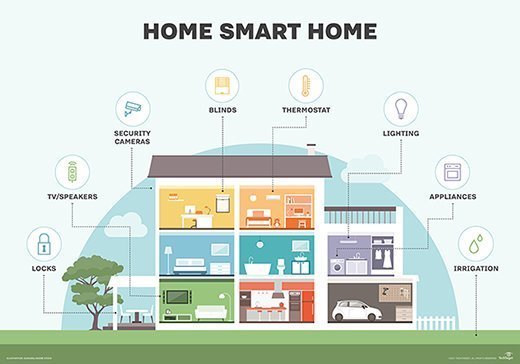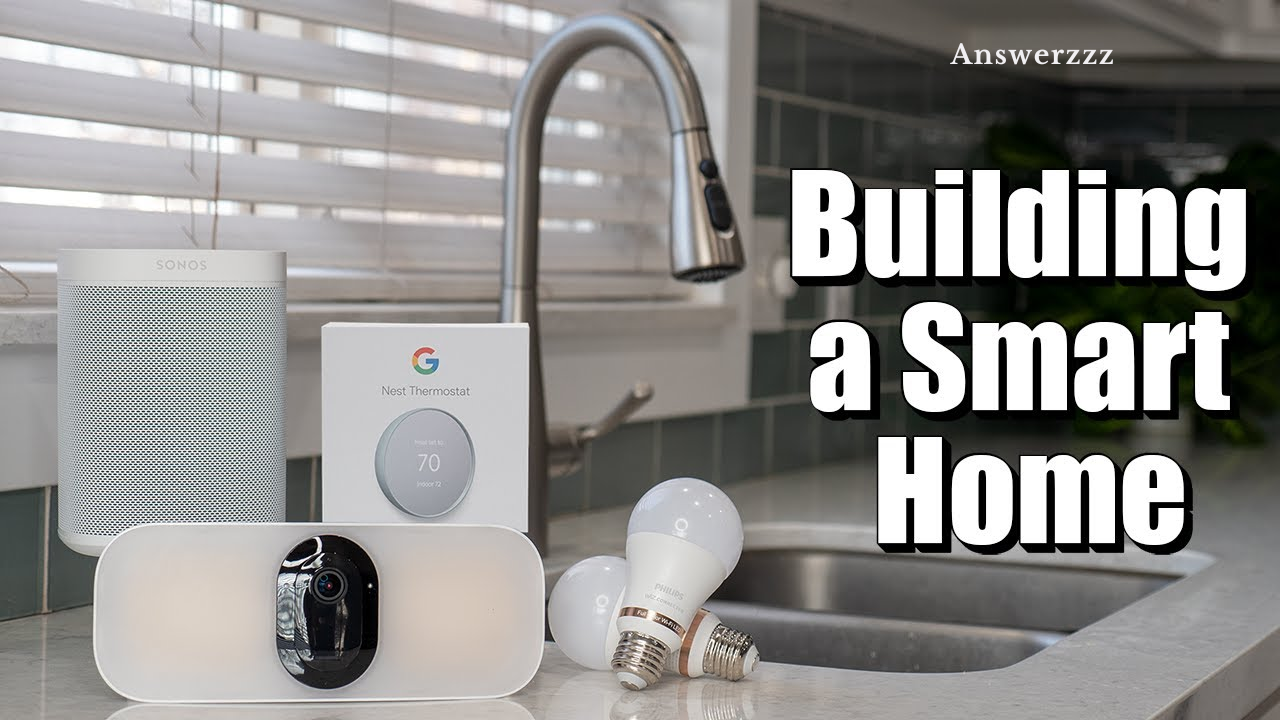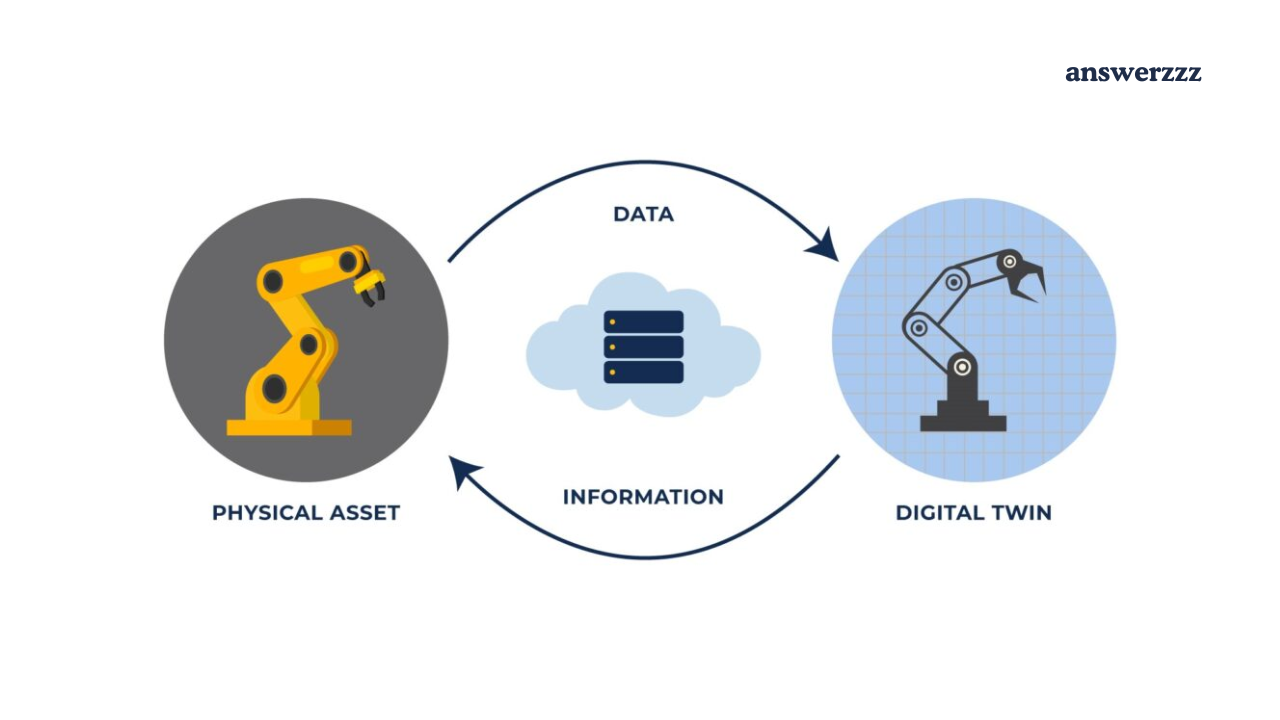As we approach 2025, the concept of a smart home has evolved from a futuristic vision to an everyday reality for many homeowners. The integration of technology into our living spaces has transformed how we manage our homes, enhancing convenience, efficiency, and security. This article explores the essential devices that will shape the smart home landscape in 2025, providing insights into how they work and the benefits they offer.
The Rise of Smart Homes
The smart home revolution is driven by advancements in technology, particularly the Internet of Things (IoT), artificial intelligence (AI), and connectivity. Homeowners are increasingly seeking solutions that offer greater control over their environments, leading to a surge in the popularity of smart devices. According to a report by MarketsandMarkets, the global smart home market is projected to reach $174 billion by 2025, highlighting the growing interest in smart home technology.
Smart homes not only provide convenience but also contribute to energy efficiency, safety, and overall well-being. As we look ahead, several key devices are set to become essential components of the smart home ecosystem.
Smart Hubs: The Heart of Your Smart Home

At the centre of every smart home is a smart hub, acting as the command centre for all connected devices. In 2025, smart hubs will become even more advanced, capable of integrating with a wider range of devices and systems. Popular options like Amazon Echo and Google Nest Hub will continue to evolve, featuring enhanced voice recognition, improved user interfaces, and increased compatibility with third-party devices.
Smart hubs will not only control lights, thermostats, and security systems but will also manage more complex tasks, such as coordinating energy usage across various devices to optimize efficiency. Homeowners will be able to set routines, allowing multiple devices to work in harmony. For instance, a morning routine could trigger the coffee maker, adjust the thermostat, and turn on the lights as the homeowner wakes up.
Smart Thermostats: Energy Efficiency at Its Best
Smart thermostats are among the most popular smart home devices, and their importance will only grow in 2025. These devices learn user habits and preferences, automatically adjusting the temperature for maximum comfort and energy efficiency. Nest, Ecobee, and Honeywell are leaders in this space, with devices that can be controlled remotely via smartphone apps.
In the coming years, smart thermostats will incorporate more advanced algorithms and machine learning capabilities. They will be able to analyze weather patterns and energy consumption data, offering personalized recommendations for optimizing heating and cooling. Some models will even integrate with solar energy systems, allowing homeowners to monitor their energy production and usage in real-time.
Smart Lighting: Enhancing Ambiance and Efficiency
Lighting plays a crucial role in creating the right atmosphere in a home. Smart lighting systems offer homeowners the ability to customize their lighting experience, from colour and brightness to timing and automation. By 2025, smart lighting will have advanced significantly, with LED bulbs becoming even more energy-efficient and versatile.
Smart lighting systems, like Philips Hue and LIFX, will allow for voice control and integration with other smart home devices. Homeowners will be able to set schedules, create scenes for different activities, and even control their lights remotely. Moreover, with the rise of human-centric lighting, smart bulbs will adjust their colour temperature throughout the day to support circadian rhythms, promoting better sleep and overall well-being.
Smart Security Systems: Safeguarding Your Home
As security remains a top priority for homeowners, smart security systems are evolving to provide more comprehensive protection. In 2025, these systems will incorporate advanced features such as facial recognition, AI-driven analytics, and enhanced connectivity. Devices like Ring and Arlo will become staples in smart homes, offering video doorbells, security cameras, and motion sensors that can be controlled from a smartphone.
Smart security systems will also integrate with smart hubs, allowing homeowners to receive real-time alerts and manage their security settings from a single app. In addition, the rise of smart locks will enhance home security further, enabling keyless entry and remote access control. Homeowners can grant temporary access to visitors and receive notifications when doors are unlocked or locked, providing peace of mind while away from home.
Smart Appliances: Revolutionizing Daily Tasks
The kitchen is often considered the heart of the home, and in 2025, smart appliances will revolutionize the way we cook, clean, and manage our households. From smart refrigerators that track inventory to ovens that can be controlled via smartphone apps, the possibilities are endless.
Brands like Samsung and LG are already leading the charge with smart refrigerators that can suggest recipes based on available ingredients, while smart ovens offer features like remote preheating and recipe guidance. Washing machines and dryers will also become smarter, with features that allow homeowners to monitor cycles and receive alerts when laundry is done.
Smart Home Entertainment: Redefining Leisure Time
The entertainment landscape is also transforming with the rise of smart home technology. By 2025, smart TVs and streaming devices will be more integrated than ever, offering seamless access to a plethora of content. Devices like Roku, Amazon Fire TV, and Apple TV will continue to dominate the market, providing users with a centralized hub for their favourite shows, movies, and music.
Smart speakers, such as the Sonos One and Apple HomePod, will enhance the audio experience, allowing homeowners to control their entertainment with voice commands. The integration of AI will enable personalized recommendations based on viewing and listening habits, ensuring that users never miss a favourite show or song.
Smart Energy Management: Sustainability in Focus
As environmental awareness grows, smart energy management systems will play a crucial role in the smart homes of 2025. These systems will allow homeowners to monitor and manage their energy consumption more effectively, promoting sustainable living. Devices like Sense and Neurio will help track energy usage at a granular level, providing insights into which appliances consume the most power.
In addition, smart home systems will enable homeowners to schedule energy-intensive tasks during off-peak hours, taking advantage of lower energy rates. Integration with renewable energy sources, such as solar panels, will allow for real-time monitoring of energy production and consumption, creating a more sustainable and self-sufficient home.
Smart Health Devices: Prioritizing Well-Being
The focus on health and wellness is becoming increasingly prominent, and smart health devices will be a key aspect of smart homes in 2025. Wearable technology, such as fitness trackers and smartwatches, will integrate with home systems to provide insights into health metrics and promote healthier living.
Smart home devices like air purifiers and smart mattresses will also contribute to overall well-being. Air quality monitors will ensure that homeowners are breathing clean air, while smart mattresses will track sleep patterns and offer personalized recommendations for improving sleep quality.
Embracing the Future of Smart Living
As we move towards 2025, the concept of a smart home will continue to evolve, driven by advancements in technology and changing consumer demands. The essential devices outlined in this article represent just a glimpse of the future, where homeowners will enjoy enhanced comfort, security, and sustainability.

Building a smarter home is not just about convenience; it’s about creating an environment that supports a better quality of life. By embracing smart technology, homeowners can take control of their living spaces, optimize energy usage, and prioritize their health and well-being. The future of smart living is bright, and the possibilities are endless as we step into this exciting new era of home automation.




